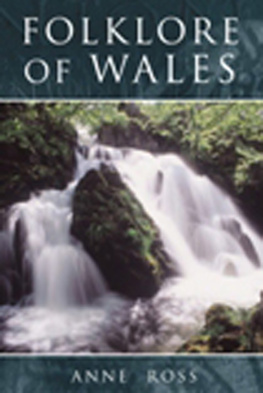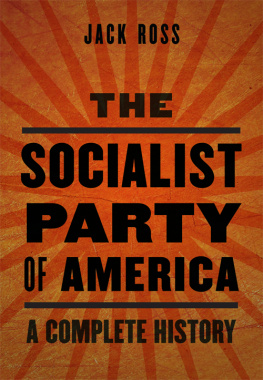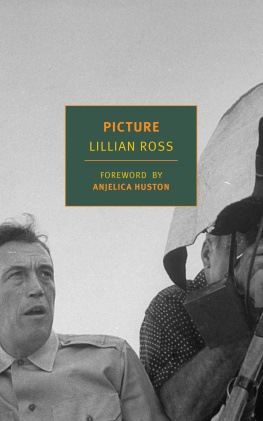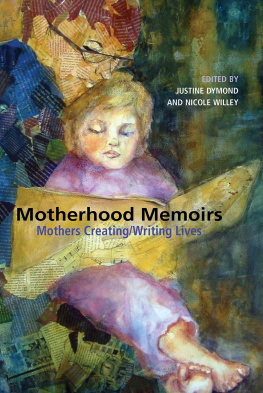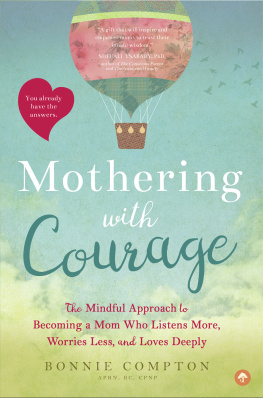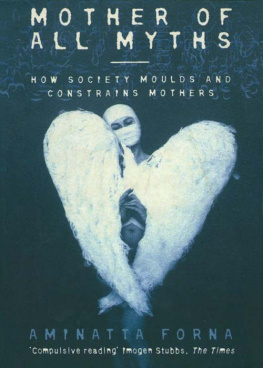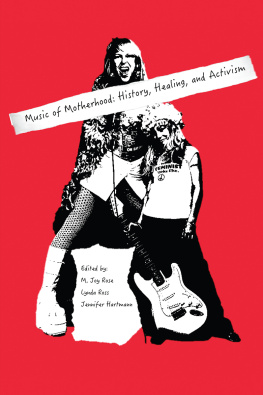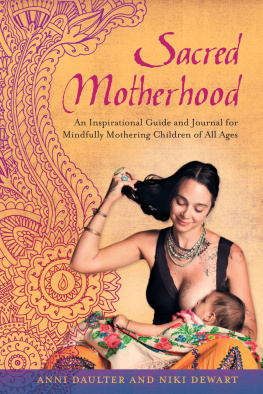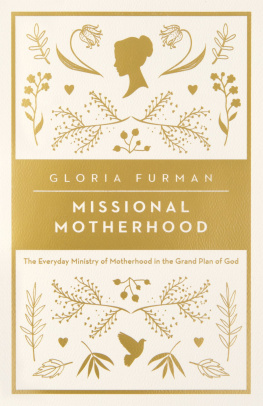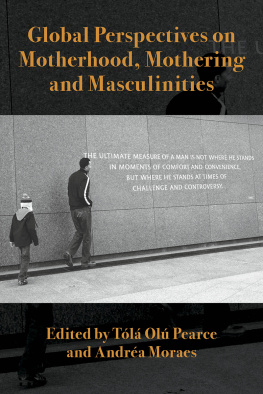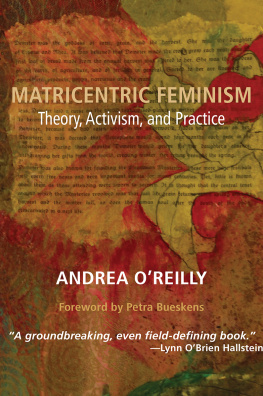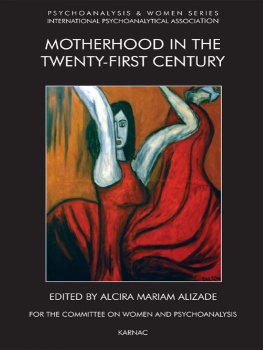INTERROGATING
MOTHERHOOD
OPEL Open Paths to Enriched Learning
Series editor: Connor Houlihan
Open Paths to Enriched Learning (OPEL) reflects the continued commitment of Athabasca University to removing the barriersincluding the cost of course materialthat restrict access to university-level study. The OPEL series offers introductory texts, on a broad array of topics, written especially with undergraduate students in mind. Although the books in the series are designed for course use, they also afford lifelong learners an opportunity to enrich their own knowledge. Like all AU Press publications, OPEL course texts are available for free download, as well as for purchase in both print and digital formats.
Series Titles
Open Data Structures: An Introduction
Pat Morin
Mind, Body, World: Foundations of Cognitive Science
Michael R. W. Dawson
Legal Literacy: An Introduction to Legal Studies
Archie Zariski
Health and Safety in Canadian Workplaces
Jason Foster and Bob Barnetson
Interrogating Motherhood
Lynda R. Ross


Copyright 2016 Lynda R. Ross
Published by AU Press, Athabasca University
1200, 10011 109 Street, Edmonton, AB T5J 3S8
ISBN 978-1-77199-143-8 (pbk.)
978-1-77199-144-5 (pdf)
978-1-77199-145-2 (epub)
DOI: 10.15215/aupress/9781771991438.01
Cover photo by iceteastock / stock.adobe.com, ID #25957521
Cover and interior design by Sergiy Kozakov
Printed and bound in Canada by Marquis Book Printers
Library and Archives Canada Cataloguing in Publication
Ross, Lynda Rachelle, 1950-, author
Interrogating motherhood / Lynda R. Ross.
(Open paths to enriched learning)
Includes bibliographical references.
Issued in print and electronic formats.
1. MotherhoodSocial aspects. 2. MotherhoodPsychological aspects. 3. MotherhoodEconomic aspects. 4. Mothers. I. Title. II. Series: Open paths to enriched learning
HQ759.R666 2016 306.874'3 C2016-906196-5
C2016-906197-3
We acknowledge the financial support of the Government of Canada through the Canada Book Fund (CFB) for our publishing activities.

Assistance provided by the Government of Alberta, Alberta Media Fund.

Please contact AU Press, Athabasca University at aupress@athabascau.ca for permissions and copyright information.
Chapter two is an adaptation of a chapter previously written by Lynda R. Ross and published under the title Mom's the Word: Attachment Theorys Role in Defining the Good Mother, in the collection, Feminist Counselling: Theory, Issues, and Practice (Womens Press, 2010).
To my wonderful childrenLisa and Michaelfor the many, many practical lessons in mothering.
Acknowledgements
This book would not have been possible without the help and support of a generous community of scholars both inside and outside of my home institution, Athabasca University. For that, I am truly grateful. I would particularly like to acknowledge and thank Martha Joy Rose, founder and director of the Museum of Motherhood (M.O.M.) not only for her commitment to mother studies, but for the encouragement, leadership, and inspiration she provides. A thank you also goes out to all of the members of the conference organizing committees and participants of the Annual Academic M.O.M. Conferences. In addition, I would like to acknowledge Shauna Wilton not only for her contribution to this book but for our ongoing research collaborations, shared coffee breaks, and friendship.
This book had its genesis in a series of conversations with my former colleague John Ollerenshaw, and I remain in Johns debt for encouraging me to imagine writing a textbook that could accompany a course I was developing on the same topic. I would also like to thank Athabasca University for honouring me with the Presidents Award for Research and Scholarly Excellence, which provided the time and space to complete this project. Thanks as well to the anonymous reviewers for their comments on an earlier draft of the book. And finally, and with much gratitude, I would like to thank Connor Houlihan, Megan Hall, and other staff at AU Press for their work in bringing this manuscript to publication.
1
The Study of Motherhood
Motherhood is a universal construct. This fact alone makes the study of mothers an important venture. While we may not all be mothers, or even able to imagine becoming mothers, we were all born of mothers. And while not all of us were cared for by our biological mothers, most individuals in Western society were cared for in the past, and will be cared for in the future, by mothers. Given the universal nature of mothering, it is surprising that until recently motherhood has remained almost invisible as a comprehensive area of academic study. This is not to say that theories surrounding the practice of motherhood and the impact of mothering on child development were not significant topics in the research and popular literatures of the past. We can even go back in time many hundreds of years to the works of some of the great thinkers and see how motherhood was understood. Certainly, these ideas from the past have informed how we imagine the roles and responsibilities of motherhood in the present.
The term motherhood dates back to the 1400s. Motherhood is a word that was and remains imbued with a sense of goodness, something regarded as so unquestionably good as to be beyond criticism [and a state of being] representing irrefutable and unquestionable goodness and integrity (Oxford English Dictionary). However, this everyday understanding does not problematize or recognize the socially constructed nature of motherhood, nor does it speak to the fluid and shifting nature of the practice of mothering and its dependence on historical, social, political, and economic contexts. Instead it imagines simply that women naturally bear and rear children and that, for the most part, they perform these functions in a state of unquestionable joy. The voices of women (and men) who mother in the real world are largely absent from this imagining.
In addition to its universal nature, motherhood also provides a lens through which to view the complex world that women inhabit in contemporary Western societies. Women who enter into motherhood do so from complicated spaces, spaces further complicated by pregnancy, childbirth, and the caring of infants and children. Not only are these spaces defined by cultural, social, political, and economic contexts, they also involve womens mental and physical health, their sexual orientations, and their employment situations, as well as the quality of their intimate and close personal relationships. Women who mother must negotiate the challenges of pregnancy, childbirth (or adoption), and child care from within those same spaces. In short, womens lives are complicated, not simplified, by the prospect and reality of motherhood. Though the wonders of birth and the joys of motherhood are ideals celebrated in contemporary Western societies, not all women are able to approach and experience motherhood with such positive feelings. Thus the critical study of motherhood involves an understanding of the complex realities defining contemporary womens lives and the consequences of those realities for womens, childrens, and societys well-being.



